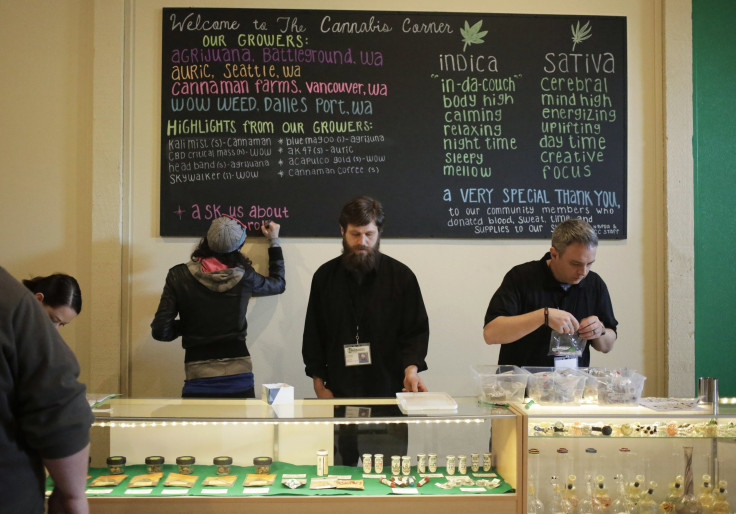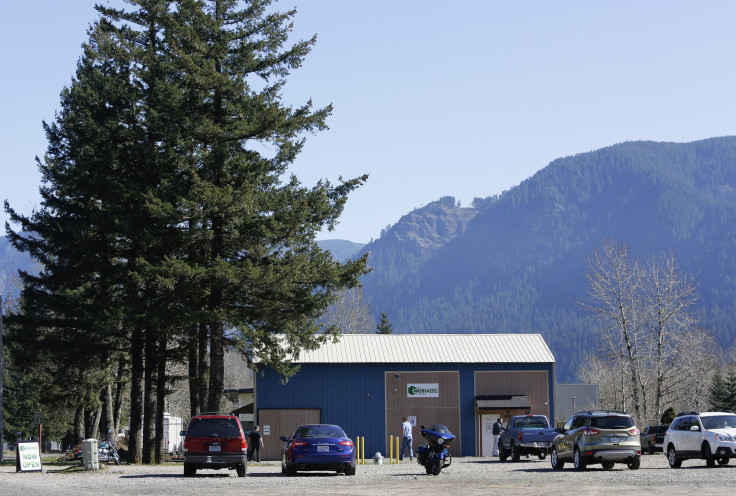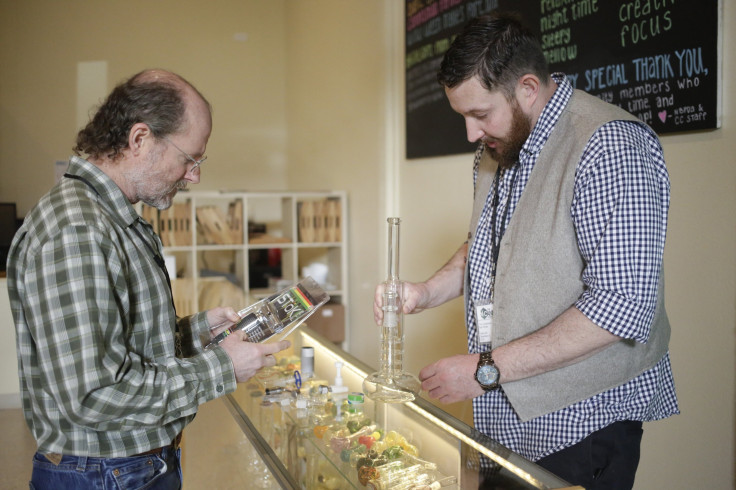North Bonneville Marijuana Shop: Can Legal Weed Save The Small, Pot-Friendly City You’ve Never Heard Of?

There wasn’t much to say about North Bonneville, Washington, a small bedroom community nestled in the Columbia River Gorge just north of the Oregon border, before March 7. That day, the city opened what became known as the country’s first government-owned marijuana store, the Cannabis Corner, a city-sponsored pot shop selling state-sanctioned weed with names like Blue Magoo and Pineapple Express.
The endeavor has since catapulted the city into the national spotlight, publicity North Bonneville hopes will bring foot traffic, permanent businesses and, most importantly, money that the cash-strapped community could use to hire back its one-man police force, refurbish its outdated sewer system and keep its streetlights on at night. “People sort of just forget about Bonneville,” Tim Dudley, president of the North Bonneville Public Development Authority, which was set up by the city to manage the pot shop, said. “This definitely has put us on the map.”
With fewer than 1,000 residents, a lone gas station and a handful of private businesses, North Bonneville has never been an economic powerhouse. But city officials are betting the recently legalized marijuana industry will change that. North Bonneville runs on a yearly budget of about $1.2 million. Officials estimate the Cannabis Corner could bring in as much as $250,000 a year in profits, enough to cover 20 percent of North Bonneville’s annual expenses and more than the city gets from its main revenue source, property taxes.
The money would go straight into a fund the city could then apply to the Public Development Authority to use. The first item on North Bonneville’s agenda is renovating the city’s outdated public park. “Before we do any big projects we want to make sure we have our feet on the ground,” Dudley said.

Whether a pot shop and pretty mountain views are enough to spur an economic boom has yet to be seen. Some have wondered if the city is too optimistic in believing that the Cannabis Corner could be the catalyst to recovery. With Oregon having legalized marijuana for recreational use in 2014, retail pot shops could soon follow, meaning there will be no need to drive across the Washington border to purchase pot.
“Is this thing going to help the city? Absolutely,” John Spencer, a financial consultant hired by North Bonneville to develop the pot store’s business model, said. “Is it going to save this city? We’ll see.”
Even before the 2008 housing crash, North Bonneville was in dire straits. The city had sold off much of its land by then just to stay afloat and was on the verge of bankruptcy when the bubble burst. Increasing its water and sewer rates and slashing its expenses helped the community survive the recession, but barely.
It’s a struggle that dates to the 1970s when North Bonneville was literally bulldozed and relocated to make way for the expansion of the Bonneville Dam, one of the largest hydroelectric dams in the world. The new city was set back from the freeway, meaning North Bonneville fell off most everyone’s radar. The collapse of the region’s timber industry in the 1980s further hurt North Bonneville’s economy. The Register-Guard newspaper described the city in 1992 as “an odd sort of place, distinguished by homes, a few public buildings and parklike [sic] open spaces.” That year, the city filed for bankruptcy, the first Washington municipality to do so.
City officials predict the pot shop will bring North Bonneville out of the shadows and attract more permanent residents. “Property values have gone back up a little bit, houses have been selling a little bit more,” Mayor Don Stevens, who has advocated for the pot shop since Washington legalized recreational marijuana in 2012, said.

North Bonneville’s total population in 2010 was just 847, according to the latest U.S. Census Bureau data. That year, 8.6 percent of the city’s 418 housing units were vacant. “What we’re looking at this to do is help in a small way, financially and more, attracting more tourists and people to the community,” Stevens said.
Some local businesses expect the pot shop will bring more customers to the area. “People that smoke pot tend to be hungry,” Zachary Martin, general manager of the Dam Roadhouse Restaurant in North Bonneville, said. The restaurant has placed $1 off coupons at the Cannabis Corner and plans to put up a sign out front that reads “The Dam Munchies,” Martin said.
With the opening of the Cannabis Corner, the city has already added 11 jobs to its workforce of just a few hundred. Officials are hopeful that more businesses will set up shop and tout North Bonneville’s proximity to Portland International Airport -- a 45-minute drive away -- and lower property costs in the city compared to the Portland metro area as selling points for new employers.
“Even if this thing falls flat on its face, [the media attention has] probably given us half a million in free advertisement,” Spencer said. “That’s something this city could never do on its own.”
© Copyright IBTimes 2024. All rights reserved.





















